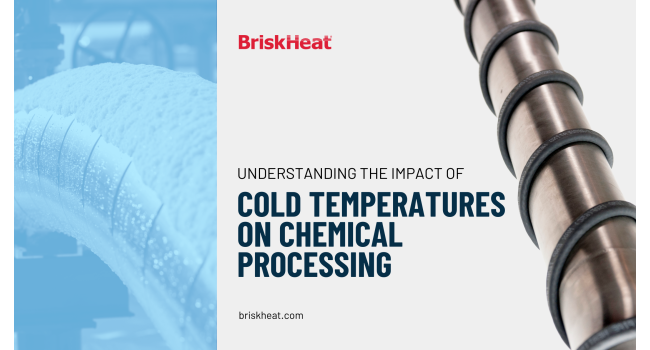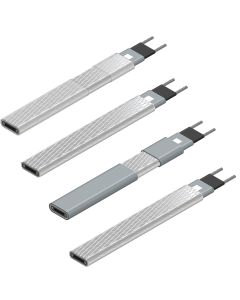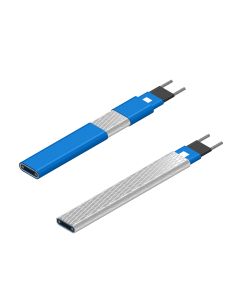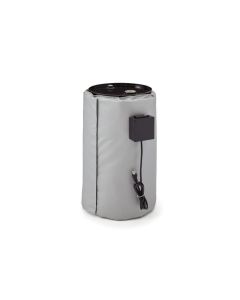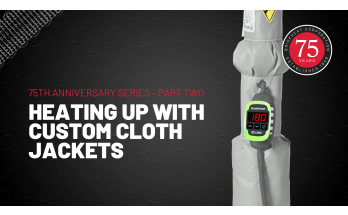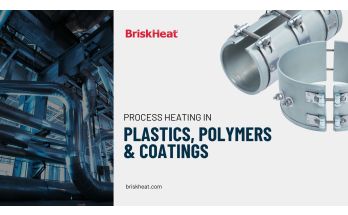The Hidden Dangers of Cold Temperatures on Chemicals
Temperature changes, whether it's extreme heat in summer or freezing temperatures during the winter can have a dramatic effect on many chemicals. Changes to the physical properties of chemicals in cold weather can impact everything from the manner in which they flow and can be mixed, to their ability to react with other chemicals.
Freezing Temperatures Negatively Affect Liquid and Gaseous Chemicals
Water can have an adverse effect on chemicals containing mechanical or chemically bound water when temperatures are below freezing. Crystals can form and prevent flow through smaller orifices. Water may also be trapped in small cracks within components, and when frozen, expand to further weaken the component structure. Pipes containing water for mixing or wastewater, as well as water pipes used for fire suppression may freeze solid and burst if not kept warm.
Gases may also contain small amounts of water vapor. In colder temperatures, the vapors condense to leave liquids in the piping. This not only changes the properties of the gas but can also cause corrosion within the piping. This corrosion can prevent valves from opening and closing, block holes in nozzles or instrumentation tubes, damage pressure regulators and contaminate materials being processed.
Viscosity Control: A Key Aspect of Chemical Processing
Not only are freeze protection and condensation prevention important considerations in the chemical industry, but also viscosity control as well. Thicker liquids such as oils flow more quickly when heated. In cosmetic manufacturing, heat reduces viscosity and allows for more uniform dispersion of scents, tints, water, or other ingredients required for the final product. Production is increased as the time required to fill bottles, tubes or jars is decreased with mixtures are heated. Container heaters for drums, pails and totes are used to reduce viscosity in addition to preventing liquids from freezing.
Dry Chemicals Need Protection, Too
Dry chemicals, sometimes know as bulk solids are often stored and dispensed through hoppers. These are often dispensed by weight. In cold weather, condensation can change the weight of the material, but also cause clumping that obstructs dispensing and mixing. Silicone rubber or metal housed hopper heaters can be affixed to hoppers and conveyor systems to prevent dry chemicals from absorbing condensed liquids from the atmosphere. Warmer dry chemicals are less likely to adhere to container surfaces during dispensing and can be mixed more uniformly than bulk solids containing moisture.
BriskHeat: Your Partner in Chemical Processing Protection
BriskHeat offers a range of solutions tailored to the chemical processing industry's needs. From self-regulating heating cables to cloth heating jackets, we provide efficient and budget-friendly solutions. Our Freeze Protection Maintenance and Energy Efficiency Guide is an invaluable resource for selecting the right heating product. With additional options like closed-cell foam insulators and thermostats, operating costs become more economical. Our solutions not only enhance quality and production but also contribute to a cleaner and safer working environment. For a comprehensive solution, consult with a BriskHeat Account Executive or Distributor today. Let BriskHeat be your go-to provider for freeze protection solutions.

